Strauss, R: Die Frau Ohne Schatten (Thielemann)
“Something is happening, but we do not know what it is”…sing some misshapen ones in this Strauss/Hoffmansthal fantastical, metaphysical, metaphorical and mythical tale of spirit beings, golden waterfalls, unborn children singing while cooking in a frying pan and earthquakes.
They could well be commenting on Christof Loy’s take on the drama, as all the fairy-tale elements have been dispensed with. As well as all the aforementioned plot necessities, we see nothing of the Moon Mountains, of disappearing swords or of broomsticks suddenly turning into young lads…
But, to be fair, any attempts to follow the original staging plans to the letter, even dropping a few of the more difficult effects, would be a nightmare and is probably why, along with the need for huge orchestral forces and a minimum of five massively talented singers (not to mention the amount of difficult smaller roles), putting on a production is not often mooted. Audio recordings are far easier to create, and are how I first got to know this most perplexing of works.
For this 2011 Salzburg Festival offering, the first time it had been performed there since Richard Strauss was around, Loy (together with the hugely talented Johannes Leiacker) has turned the stage of the Festpielhaus into a very commendable side-on 1950’s version of the Sofiensaal in Vienna (tragically destroyed in a fire in 2001) where, appropriately enough, the first ever recording of this work took place.
This isn’t a coincidence of course, as Loy has decided to ‘reproduce’ the original recording sessions and create a story within a story, ostensibly representing the original cast who are first seen standing dutifully near microphones, their scores on music stands in front of them and studio assistants scurrying quietly(ish) around re-arranging the furniture and offering drinks. Everyone is dressed as if it was freezing which, if you are to believe contemporary reports, it was. They soon begin to drift away from the ‘live’ recording into some sort of parallel lives that Loy tries very hard to match with those of the character they are portraying.
The ‘Empress’ is a young, reasonably inexperienced singer, who needs to tread carefully through the dramas and diva-like behaviour going on around her, before she triumphs as the soloist in a peculiar Christmassy choral gig. Her ‘Nurse’ appears to be a fading operatic star who is intent on ruining the lives of those she sees as taking her place, ending up as an usher at the aforementioned Christmassy choral gig. The ‘Dyer’ and his wife are a real-life couple, who are having some domestic trouble of their own, yet are reunited before he also appears as a soloist in the Christm….well, you get the drift. To top it all, as the additional plot progresses and convolutes, they are still all apparently recording the original LPs. It makes little sense. Unfathomable scenes of dancing girls and children suddenly appearing in place of the studio assistants just add to the confusion.
Anyway, onto the performances, where there is a great amount to admire, although due to the static nature of much of the action, facial expressions and body-language are almost permanently set to ‘off’ . It’s amazing then how much of the music’s passion is conveyed on stage, yet not necessarily by the title character.
Anne Schwanewilms’ Empress is quite often facially expressionless, yet the sounds she produces are completely at odds with what we see…which is absolutely fine with me. There’s a wonderfully secure and clear tone in much of what she sings, and comes across as a thoughtful, almost introverted but quite subtle character. Anything which could be construed as ‘strained’ would not necessarily be noticed too much in a one-off live performance.
Michaela Schuster’s Nurse is the complete opposite, personality-wise, exuding an impressive amount of manipulative evil, with a powerful voice and great stamina.
In this production, the centre of attention falls on the bickering Barak (The Dyer) and his wife, and they are well worth watching. Wolfgang Koch has a very smooth, if not the most powerful voice but is very satisfying to listen to and his character, although bordering on ineffectual, is the perfect sounding board for Evelyn Herlitzious’s quite astonishing ‘Mrs Barak’. She copes extremely well with belting out the most frightening Strauss vocal lines, yet has a remarkable ability to sustain a lovely quality of sound throughout.
The voice of The Emperor is often associated with that of a brighter register than Stephen Gould possesses (despite being a fine heldentenor) yet he manages to grasp the role with confidence, despite seeming to flag towards the end.
Of the ‘smaller’ roles, Markus Brück, Steven Humes and Andreas Conrad stand out for their great portrayal of the brothers.
The best thing about this production however is Christian Thielemann’s extraordinary interpretation of this most difficult of works, and the fact that one of the best orchestras in the world is in the pit. You will be hard pressed to find a performance with such emphasis on the light that can be squeezed out of Strauss’s extra-thick orchestrations. Thielemann mentions in the excellent 26 minute extra that Strauss wanted his music to be played as if it was by Mendelssohn, and despite claiming to wonder how this was possible, hearing the results shows that he really does understand what the composer meant.
Despite the size of the orchestra, there are very few moments in which the stage seems overpowered, yet the more intimate moments of birdsong, and especially the scene with the wonderful cello solo are brought out with great clarity as well.
We see Thielemann working carefully with both the singers and orchestra on the detail he requires to allow the music and text to make sense at least, and it’s very telling that he doesn’t mention Loy’s production at all. What is also telling, is that right at the end of the curtain calls, a sizeable chunk of the audience give their pretty forthright opinion on the production when Loy and his team are called onto the stage. As Thielemann says, “Many people who come here are addicted to ‘Die Frau…”. Sometimes it’s best not to mess with things, however well-intentioned you are.

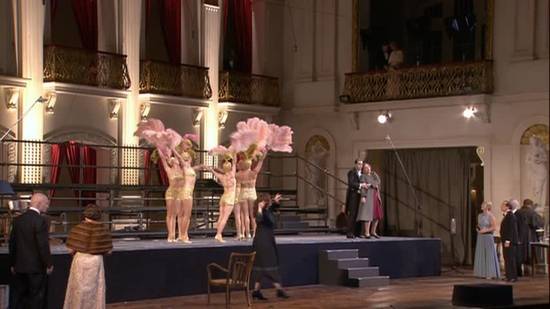
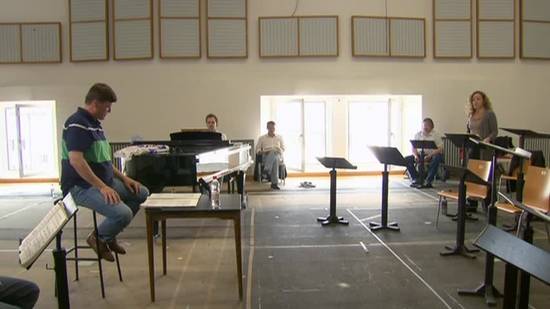
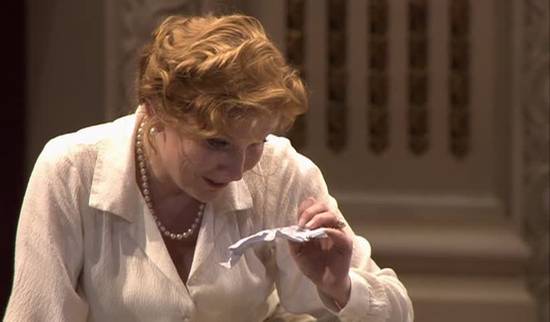
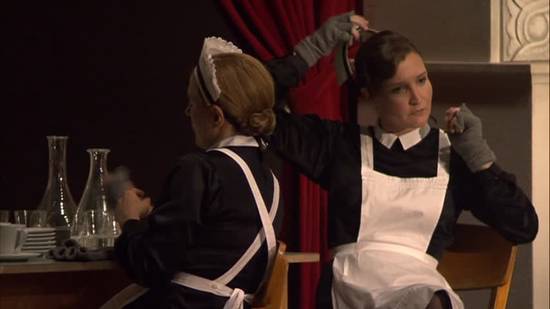
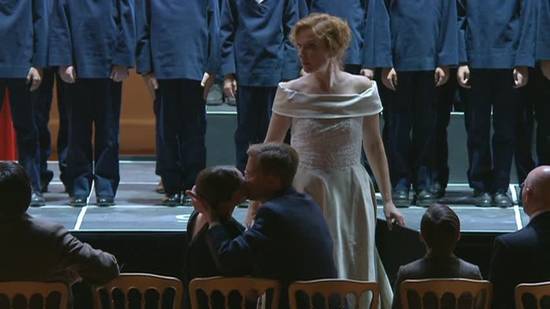
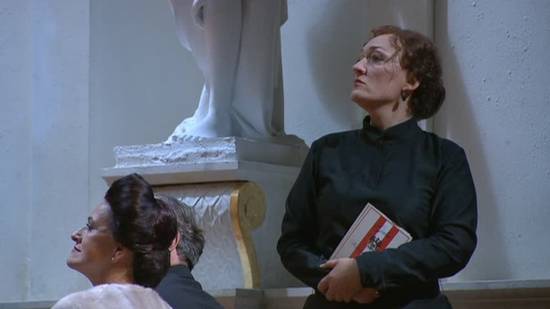
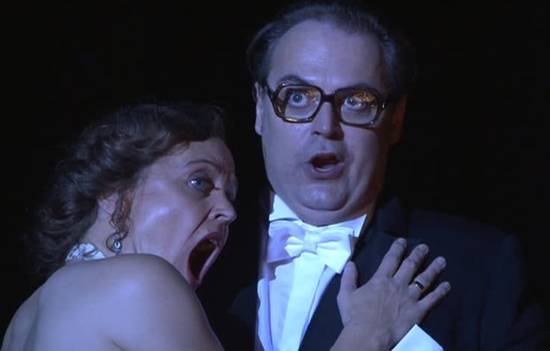
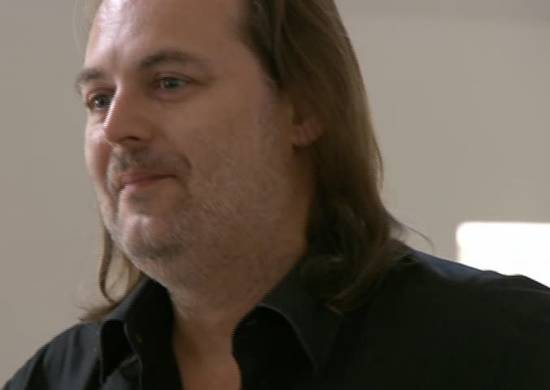
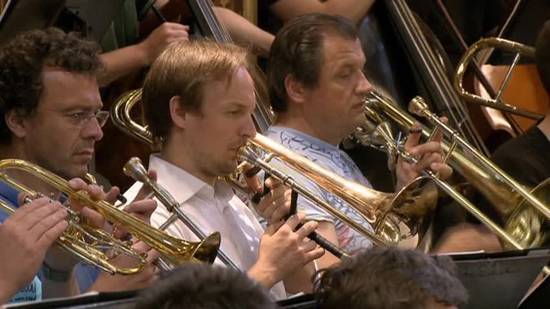
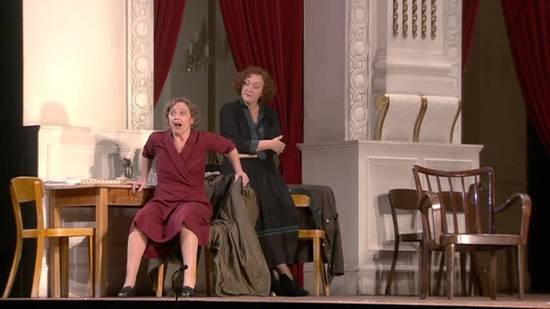
Your Opinions and Comments
Be the first to post a comment!